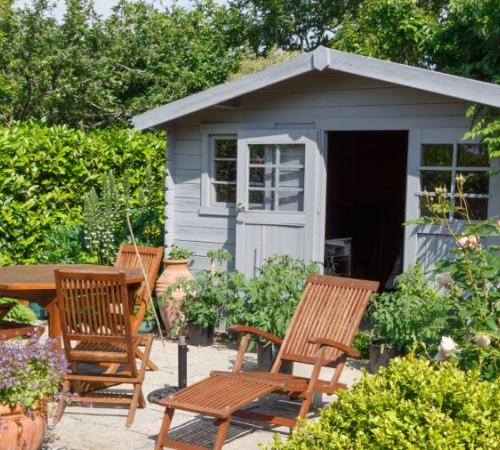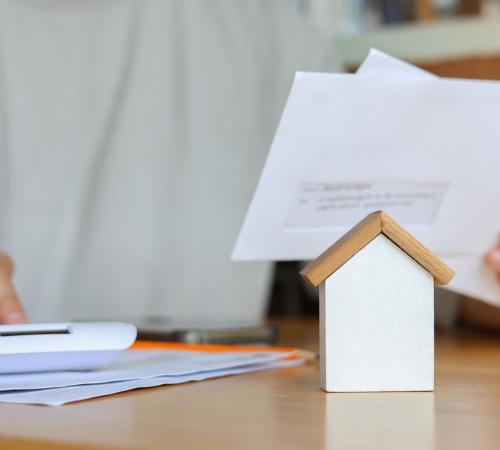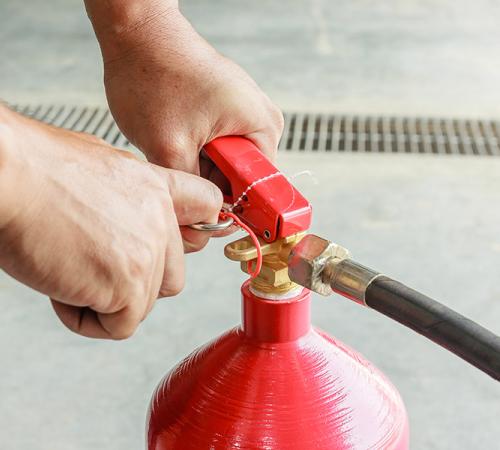

This guide explores how landlords prepare their homes for the winter season.
Servicing your boiler
Many landlords prioritise a thorough boiler service for their properties heading into winter. Under Section 11 of the Landlord and Tenant Act 1985 (external link)1 , landlords are legally required to maintain the installations that provide heating and hot water, including the boiler, in good repair and proper working order.
Failing to do so not only breaches the law but also risks leaving tenants without essential heating or hot water during the cold months if the boiler breaks down. Additionally, boilers that aren’t serviced can lead to costly repairs or even full replacements. An annual service can pre-emptively address potential issues, saving you money in the long run.
Landlords with boilers that are over 10 years old often consider upgrading it. Older boilers tend can become less efficient, consuming more fuel and becoming more prone to breakdowns. Upgrading to a newer, more energy-efficient model can make your rental property more appealing to tenants and reduce the risk of unexpected failures.2 Multiple grants exist to help landlords make the switch - read our guide to landlord boiler grants to find out more.
Inspecting and maintaining heating systems
Landlords with rental properties equipped with other heating systems, such as heat pumps or furnaces, should ensure these systems are fully operational before winter. As mentioned, according to Section 11 of the Landlord and Tenant Act 1985 (external link), landlords are required to provide tenants with access to hot water and heating. Therefore, many landlords have the heating systems in their rental properties professionally serviced before winter arrives.
Insulating and weatherproofing the property
Ensuring your property is well-insulated is crucial as winter approaches. Proper insulation can not only enhance energy efficiency by reducing heat transfer between the interior and exterior but also boost tenant comfort, making your property more attractive.
Here are some steps that many landlords take to ensure your property is adequately insulated:
- Inspect loft insulation: If it's not deep enough or outdated, consider topping it up or upgrading3
- Check doors and windows for drafts: Seal any drafts with weather stripping or caulk
- Identify cold spots and drafts in walls: These may indicate poor insulation or gaps that need sealing. Cold spots could also signal structural issues requiring professional attention
- Look for mould: Mould build-up can indicate poor insulation affecting airflow. If you find mould, especially in the bathroom, you might need to re-insulate
- Review your EPC rating: A low EPC rating could suggest inadequate insulation.4
Preventing frozen pipes
Frozen pipes are a common issue during winter. When pipes freeze, it not only stops the heating system from working but can also lead to burst pipes, causing leaks, floods, and water damage. Therefore, many landlords take steps to protect them before the cold weather arrives.
All external pipes should be well-insulated, and internal pipes in unheated areas, such as basements, should also be protected. Additionally, landlords might want to remind tenants to occasionally turn on the heating, even if they don't use it regularly, or to keep it at a low temperature while they are away to prevent pipes from freezing.
Roof and gutter maintenance
As winter approaches, many landlords check their gutters are well-maintained to prevent water damage. During autumn, leaves and other debris can accumulate in your gutters, leading to blockages. When winter rains arrive, these blockages can cause significant issues, including structural and roof damage from water seeping into your foundations or roof. Additionally, the weight of the debris can cause the gutters to collapse.
In extremely cold temperatures, trapped water can freeze, forming ice dams that prevent proper drainage and create leaks in your property. So, before the winter months, check all gutters and make sure they’re clear.5
Communicating with tenants
In addition to staying on top of property maintenance before and during winter, it can be good practice to ensure your tenants are also doing their part. Maintaining open communication with them can help keep the property in good condition together.
Here’s a quick checklist of things to consider:
1. Encourage tenants to report any issues promptly. Let them know that the best course of action is to inform you immediately if they find a problem.
2. Ensure you and your tenants have the correct contact information. This allows you to notify them if you need to arrange a visit for maintenance and ensures they can reach you to report any issues.
3. Advise tenants to keep the property adequately heated. Even if they don't plan to use the heating much, turning it on occasionally can prevent frozen pipes. Some landlords include a tenancy agreement clause requiring tenants to sufficiently heat the property during winter months.
4. Request tenants to inform you if they plan to leave the property for an extended period during the Christmas season. This can expose the property to additional risks, and your landlord insurance may not cover you if the property is unoccupied for over 30 days. Knowing their plans helps you ensure your policy remains valid and reminds them to secure the property and turn off the water supply.
Disclaimer:
Managing rental properties is a complex business. At Hiscox, we want to see your investments thrive. Our articles offer insights into property management and landlord best practices. But these articles aren't professional advice. To find out more about a subject we cover here, please seek professional advice.
References
- https://england.shelter.org.uk/professional_resources/legal/housing_conditions/responsibility_for_repairs/repairs_under_section_11
- https://www.plumbworld.co.uk/blog/when-to-replace-a-boiler?
- https://www.nrla.org.uk/news/preparing-your-rental-property-for-winter-essential-maintenance-tips-for-landlords%20https:/blog.openrent.co.uk/winter-proof-your-property-tips-for-landlords/%20https:/www.lettingaproperty.com/landlord/blog/prepare-your-proper
- https://www.bhbh.org.uk/resources/understanding-your-epc
- https://www.nrla.org.uk/news/preparing-your-rental-property-for-winter-essential-maintenance-tips-for-landlords%20https:/blog.openrent.co.uk/winter-proof-your-property-tips-for-landlords/%20https:/www.lettingaproperty.com/landlord/blog/prepare-your-proper






